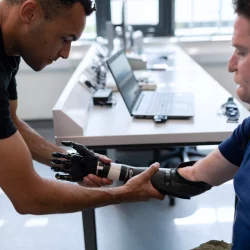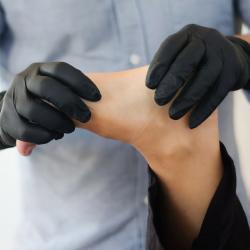Emergency Dental Care: What You Need to Know
When it comes to our overall health, dental care often takes a back seat until an issue rears its painful head. Yet, understanding the significance of emergency dental care can be a lifesaver, both figuratively and literally. In this blog post, we'll delve into the world of dental emergencies, exploring common issues that can strike suddenly and the vital role you play in managing them.
Imagine being jolted awake in the middle of the night by an excruciating toothache, or worse, discovering a chipped tooth after a fall. Dental emergencies can happen to anyone, anywhere, at any time. Hence, being prepared and knowing how to handle these situations becomes paramount. We'll not only describe the symptoms and causes of common dental emergencies but also provide essential guidance on managing them at home.
Moreover, we'll stress the importance of timely dental visits for preventive care. Preventive measures are your first line of defense against dental emergencies. Regular check-ups with your dentist can also help detect potential issues before they escalate into crises. So, join us on this journey through the world of dental emergencies, as we equip you with knowledge to tackle them head-on.
Section 1: Common Dental Emergencies
Toothache
A toothache is often a relentless pain that can disrupt your daily life. It might start as a dull ache and escalate into a throbbing torment. Common causes include cavities, gum infections, dental abscesses, or even a cracked tooth. When a toothache strikes, immediate relief is essential. Rinse your mouth gently with warm water to remove debris and use dental floss to ensure nothing is stuck between your teeth, as this can exacerbate the pain. However, these are temporary measures. The crux of addressing a toothache lies in consulting a dentist promptly. Pain that persists or worsens might signal a more severe issue that requires professional attention.
Chipped or Broken Tooth
Accidents can happen, resulting in chipped or broken teeth. Whether it's a fall, a sports injury, or biting down on something hard, a damaged tooth can be distressing. If you find yourself in this situation, preserve any broken pieces if possible. Cover sharp edges with dental wax or sugar-free gum to prevent injury to your tongue, cheeks, or lips. But remember, these are just stopgap solutions. To ensure the best outcome and minimize the risk of infection or further damage, seek dental care as soon as possible.
Knocked-Out Tooth
Perhaps the most urgent of dental emergencies is a knocked-out tooth. Whether from a sports collision or an unexpected fall, time is of the essence in this situation. The tooth can often be reattached successfully if you act swiftly. First, handle the tooth by the crown (the top part) and rinse it gently with milk or saline solution to remove dirt. Store it in a clean container with milk or your saliva to keep it moist. However, the crucial point here is timing. You have the best chance of reattachment if you visit a dentist within 30 minutes of the incident.
Section 2: How to Handle Dental Emergencies at Home
While dental emergencies can strike unexpectedly, being prepared can make a world of difference. Maintaining good oral hygiene, such as regular brushing and flossing, can help prevent many dental issues. Additionally, consider having a dental first aid kit at home, complete with dental wax, over-the-counter pain relievers, and sterile gauze.
However, it's crucial to emphasize that home care is not a substitute for professional dental treatment. While these measures can provide temporary relief, they should be seen as initial steps until you can seek assistance from a dentist. Dental emergencies require expert evaluation and treatment to address the underlying causes and ensure long-term oral health. So, while you can manage some aspects of dental emergencies at home, don't hesitate to reach out to a dental professional for comprehensive care and guidance.
Section 3: When to Visit the Dentist
Regular Check-ups
Regular dental check-ups are the foundation of a healthy smile. They're not just about fixing problems when they arise; they're about preventing those problems in the first place. These routine visits are vital for catching issues early, before they become painful or costly to address. Most dentists recommend visiting every six months, but your dentist Kearny Mesa may adjust this based on your specific needs.
Signs You Shouldn't Ignore
Sometimes, your teeth and gums send distress signals that demand immediate attention. Don't ignore severe pain, persistent swelling, unexplained bleeding, or discomfort that just won't go away. These can be indicators of underlying problems that need urgent care. Acting promptly can make all the difference, turning a potential crisis into a manageable issue.
Dental Emergencies
In the realm of dental emergencies, time is your greatest ally. If you find yourself facing a dental crisis, don't delay. Whether it's a knocked-out tooth, a severe infection, or unbearable pain, these situations require immediate professional help. Call your dentist or visit an emergency dentist office without hesitation. Your quick response can preserve your oral health and spare you from unnecessary suffering.
Conclusion
In the world of emergency dental care, knowledge is power. Understanding the common dental emergencies and how to manage them at home empowers you to take control when the unexpected strikes. Equally important is recognizing when to visit your dentist—routine check-ups for preventive care, heeding warning signs, and addressing dental emergencies without delay.
Proactive dental care is your key to maintaining oral health and overall well-being. By following the guidelines in this article, you can protect your smile and minimize the impact of dental emergencies on your life.
Additional Tips
In addition to the information provided, consider the financial aspect of dental emergencies. Having dental insurance or setting aside funds for unexpected dental expenses can ease the financial burden. Lastly, keep a list of emergency contact numbers for a local dental office. Quick access to these numbers can be invaluable in a dental crisis, ensuring you get the help you need when you need it most.







